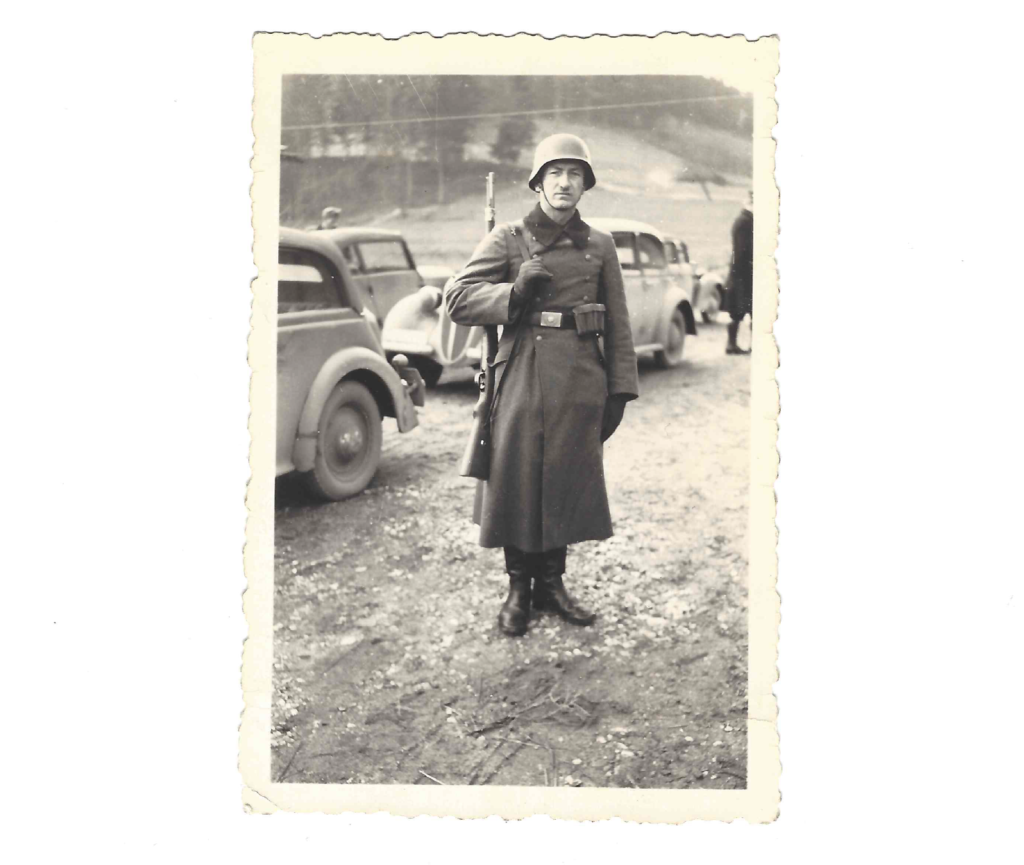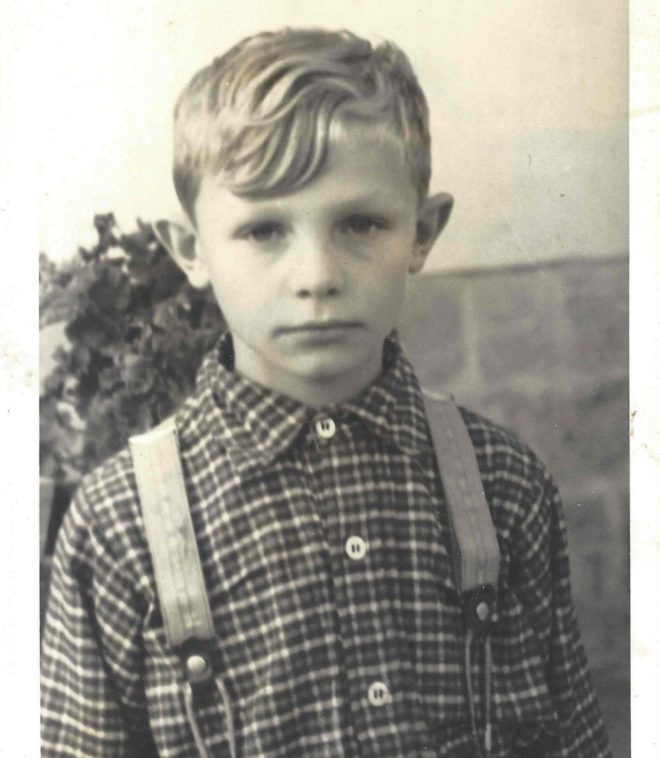In 1939, my father was living in a small village in Upper Silesia, a part of Germany that was ceded to Poland after the end of the Second World War. He, his parents, his maternal grandmother and his mother’s brother lived together on his grandmother’s farm (his father had moved in with his wife’s family after they married in 1928). My father was nine years old when the war began. The following excerpt from his life story contains his recollection of the days leading up to the beginning of World War II.
The date August 26, 1939 is cemented in my memory as clearly as an inscription in a rock wall by some ancient civilization. For me it marked the beginning of the Second World War, even though the war only started officially on September 1st.
August 26th started as any other day in late summer. I went to school together with my schoolmates, looking forward to another day of the usual learning and some fun. While we were at recess during midmorning and likely kicking around a soccer ball, the postman appeared at the school. This was not noteworthy. However, after he left, our principal called us together and told us he was closing the school for the rest of the day and the next: he had been notified by the postman that most of our fathers had received orders to report for military duty the following day.
When I got home, my mother informed me that my father was indeed one of the men who had received the summons. Somehow word had reached my father at work, and he came home early. My parents were quite saddened by this sudden turn of events and busied themselves preparing for Dad’s departure the next day. I, just two months short of my 10th birthday, was also sad, but figured his absence would only be of a short duration since my father had been called up for training as a reservist twice previously and had returned quickly on those occasions.
The next day my mother and I went with my father to the railway station, just as many other members of our village accompanied their husbands and fathers. There we said our goodbyes. As we returned home, I overheard many of the adults talking about the possibility of an imminent war.
While I had learned in school about the First World War (which had ended eleven years before I was born in 1929), I had no real conception of what war was all about and the possible consequences. As a result, I went about my usual childhood business of playing unconcernedly with the neighborhood kids. When I woke up the next morning, I heard some unusual rumbling on the village street and to my surprise saw some tanks on the move. When we got to school, we were sent home again. As it turned out, the armored unit which had moved in had made our school their headquarters.
On the way home, we discovered that a number of tanks had taken shelter in a stretch of woods about 100 meters behind the graveyard and church, so as not to be discovered by possible enemy aircraft. Of course, for us that caused great excitement and we were not long in exploring the goings-on. The soldiers were very friendly and allowed us to clamber around on the tanks and fed us from the field kitchen (or as we called it “the Goulash Cannon“). We had a grand time, forgetting all about the possibility of an approaching war. As it happened, our village was located near the Polish border, only 12 kilometres to the north and 20 kilometres to the east.
This situation went on for two days. Then, on the following morning – the 1st of September – the tanks and soldiers had disappeared. We learned through the radio that Germany had declared war and invaded Poland. In spite of the closeness to the border, we did not hear any shooting due to the fact, as I learned later, that Poland was not prepared for the war and offered little or no resistance. Within 18 days Poland was defeated with the help of the Red Army, which had invaded Poland from the east. We found out later that Foreign Minister Molotov of the Soviet Union and German Foreign Minister von Ribbentrop had met in Moscow on August 23rd and agreed to divide up Europe in what became known as the Molotov-Ribbentrop Pact.
My mother’s brother, my Uncle Paul, had been called up at the same time as my father. Uncle Paul was released from duty at the end of the conquest of Poland. He had already served for a year or two at the end of the First World War and, at the age of 43, was considered too old for active duty. He was never called up again throughout the duration of the war.
My secret expectation that Dad would return home quickly was not fulfilled because later that year his unit was transferred to the west, near the border with France. Although Poland had been defeated, the war was ongoing because Britain and France had declared war on Germany after Poland was invaded.


Love these excerpts!
Thanks, Jane! Glad you are enjoying and continuing to read my father’s memories.
I was really getting into the story. How about writing a book about your family’s experiences in Germany during the second world war?
Glad you are enjoying the stories from my dad’s experiences during WWII, Heather. I am toying with the idea of using his memories for something “bigger” but I’m not sure how many people still want to read/hear that sort of thing… Thank you for the suggestion.